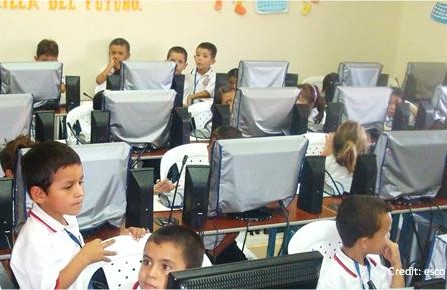We are pleased to share two new issues of PREAL’s Education Synopsis series that focus on using Information and Communication Technologies (ICT) in education policies and programs.
Education Synopsis No. 47 is based on “Digital Technologies: A Path to Improved Education and Health in Remote Communities,” by Peter Hakim and Mariellen Jewers (Inter-American Dialogue, 9 November 2011). The authors ask how Latin American governments can take advantage of digital technologies to expand and improve education and health services in remote rural communities. They also discuss how to determine whether computer technologies can help decrease extreme poverty and isolation. After analyzing relevant experience and studies, they caution that ICT programs require a sound infrastructure in order to be effective, will almost always incur higher costs than anticipated, require a substantial acclimation period for both students and teachers, and should be evaluated regularly to ensure utility, as contexts and platforms result in widely varying outcomes.
Education Synopsis No. 48 offers recommendations on implementing ICTs in schools based on the Inter-American Development Bank’s 2011 publication entitled “Schools and Computers: Why governments Need to Do Their Homework.” The article recommends conducting more, larger-scale evaluations, investing resources in teacher training and technological infrastructure in addition to computers, establishing systems to ensure equal access to ICT resources, and recognizing that while using technology in education requires a significant, ongoing financial investment, it can also be used to provide quick, accurate results of student achievement tests.


